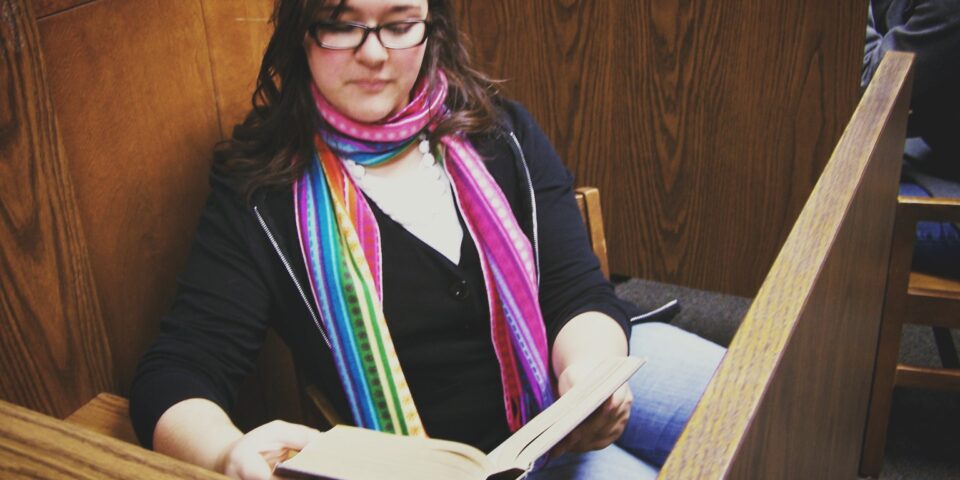I’m a daughter, a sister, a friend. I’m a BYU graduate. I’m a musician. I’m a student and a teacher. I’m a Mormon, and I support the ordination of women.
About me:
I grew up in Auburn, Washington, the oldest of four children in a mixed-denomination Christian home. I joined the church as a senior in high school and later graduated from Brigham Young University in Provo, Utah with a Bachelor’s degree in Linguistics. I’m currently pursuing a career in teaching English as a second language. I enjoy reading, playing the violin, and watching French movies.
Why I am a Mormon:
I am happiest when I communicate with my Heavenly Parents and live my life after Jesus Christ’s example. I believe that this church bears His name because it emulates His teachings and encourages its members to live as He did: with love, compassion, and kindness, giving service to those who stand in need of it. I cherish the level at which Mormon members and leadership emphasize love and service in their sermons, doctrines, and in the way they live their lives.
Why I think Mormon women should have the priesthood:
I believe in Heavenly Parents, a Mother and Father, who send Their children to this earth so that they might learn how to be like Them and return to live with Them again. When I consider the various ways in my life that I have tried to be like my Heavenly Parents, I constantly fall short of others on this earth who are blessed with the opportunity to act in God’s name, to perform saving ordinances, and to pronounce Priesthood blessings over those who need them. As I believe in a God who is “no respecter of persons,” I also believe in a God who intends for every righteous son and daughter to revel in the same blessings and opportunities so long as they are worthy to receive them. As of today, no matter how righteous a life I may lead, I am not eligible to receive the blessings that belong to Priesthood bearers solely because I am a woman. I find in this a great injustice.
In 1978, after the doctrine of the church changed to reveal that all worthy men could receive the priesthood regardless of race or ethnicity, then-Apostle Bruce R. McConkie answered questions about the change by saying, “Forget everything that I have said, or what President Brigham Young or President George Q. Cannon or whomsoever has said in days past that is contrary to the present revelation. We spoke with a limited understanding and without the light and knowledge that now has come into the world . . . We get our truth and our light line upon line and precept upon precept. We have now added a new flood of intelligence and light on this particular subject, and it erases all the darkness and all the views and all the thoughts of the past.” I hope that Elder McConkie’s words will someday apply to priesthood holders in a future and similar capacity, when women are afforded their divine right to share with men in carrying with them the blessings and responsibilities of priesthood ordination.







